Iran's New Central Bank Chief Says 'Economic Indicators Improving'
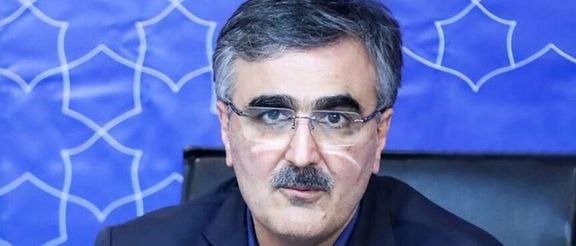
The new chairman of the Central Bank of Iran (CBI), amid a serious economic crisis, said Friday that macroeconomic indicators show signs of improvement.

The new chairman of the Central Bank of Iran (CBI), amid a serious economic crisis, said Friday that macroeconomic indicators show signs of improvement.
Mohammad-Reza Farzin, appointed last week, did not explain which economic indicators show improvement. His predecessor was sacked because of a serious financial and currency crisis.
The Iranian rial has lost 50 percent of its value since mid-2021 and 30 percent this year, raising fears of higher inflation. Iran’s annual inflation rate is al,ost 50 percent, with food prices averaging 78 percent increase in the past 12-month period.
The financial crisis comes at a time of antigovernment protests, instilling anger among the population impoverished in the past five years after the United States imposed sanctions on Iran’s economy.
Farzin was speaking at his first meeting of a government outfit called “Headquarters for Economic Information and Propaganda” established in 2018 to fight against “psychological warfare” in markets. Iranian officials often blame poor economic performance on “enemy” conspiracies.
Farzin strongly intervened in the currency market on December 31 as the rial sank to 440,000 to the US dollar last week. The amount of foreign currency injected into the market was kept secret, but the rial regained close to 10 percent of its value but remained at almost an all-time low of 400,000 to the US dollar. Subsequent interventions only had a temporary impact.
The rial has been steadily losing value since the Islamic Republic was established in 1979, when the dollar equaled just 70 rials.
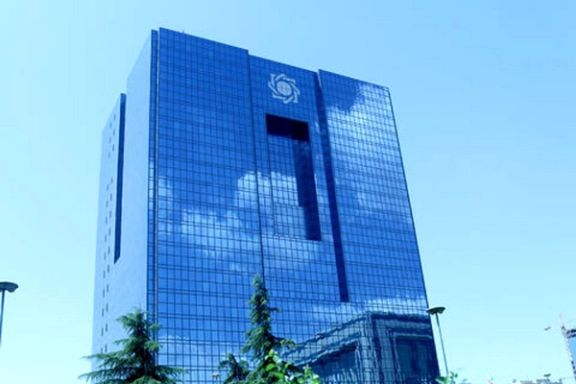
Iran has foiled a cyberattack on its central bank, and government -controlled apps, the country's telecommunications infrastructure company said on Friday.
Anonymous and other global hacking groups threatened in October to launch cyberattacks on Iranian institutions and officials in support of anti-government protests and to bypass internet censorship there.
Several hackings did take place and a throve of government secrets have been put online by hactivist groups since October. The most notable were secret briefing files stolen from Fars news agency that reveled texts of secret briefings for senior officials.
Amir Mohammadzadeh Lajevardi, head of the Infrastructure Communications Company, said the central bank was targeted by a distributed denial-of-service (DDoS) attack on Thursday night, the official IRNA news agency quoted him as saying.
DDoS attacks attempt to cripple servers by overwhelming them with internet traffic.
"These days, the largest volume of foreign attacks is against banks and financial institutions, internet providers and communications infrastructures, which have been repelled," Lajevardi said. IRNA gave no further details.
The central bank said in September that a cyberattack briefly took its website offline.
Internet access has been severely limited in Iran since widespread protests erupted over the death in mid-September of a young Kurdish woman, Mahsa Amini, while in the custody of the morality police over enforcement of mandatory dress code laws.
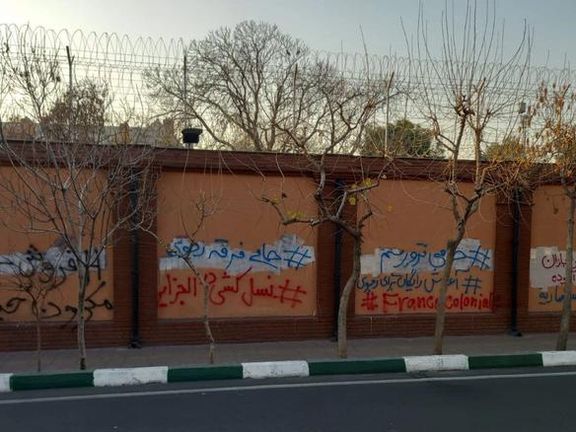
An Iranian lawmaker and IRGC officer in December called for the “serious implementation” of a 2011 law to reduce diplomatic relations with the United Kingdom.
At the time the outer walls of the UK embassy in Tehran were defaced by anti-British slogans. This week, hardliner elements did the same to the French embassy after the satirical Paris magazine Charlie Hebdo published a special issue with caricatures of Supreme Leader Ali Khamenei.
The issue of downgrading Tehran's ties with London had also been discussed at the Iranian parliament in 2009 and 2010. In 2010 ultraconservative lawmakers demanded severing ties with London altogether. The motion was sent to the Foreign Relations and National Security Committee of the Majles, but did not go any further.
Esmail Kowsari, an IRGC general who is a member of the parliament (Majles), demanded the implementation of the law against the UK and also called on the government to reconsider its ties with Germany and France.
In 2011, the move was motivated by a set of UK sanctions against Iran and in late 2022 Iranian hardliners began a series of acts of vandalism against the British embassy in Tehran as the United Kingdom, Germany and France took the lead in escalating international actions against Iran's human rights violation and drone deliveries to Russia, as well as passing a resolution at the United Nations to set up a fact-finding committee about Tehran's violations of human rights.
Kowsari told Etemad Online in December that the three European states have sinister ideas about the Iranian nation and their anti-Iranian moves have proven this. Kowsari also said in an interview with the IRGC-linked Fars News Agency: "We wish to expand our diplomatic relations, but we do not want this relation at any price."
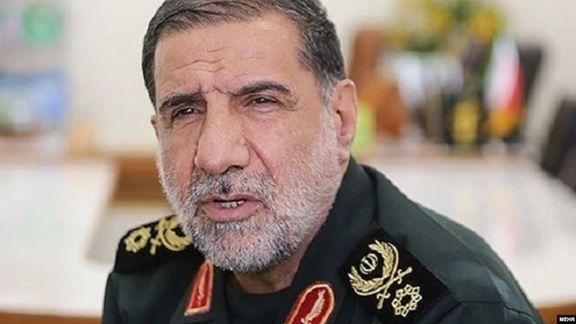
Thursday morning in Tehran, vigilante groups vandalized parts of the French embassy in Tehran in revenge for French satirical publication Charlie Hebdo publishing a special issue on Wednesday with cartoons about Khamenei under the title: "Let's take back the mullahs to where they come from."
The Iranian foreign minister called the cartoons "rude and unethical" and summoned the French ambassador to the Foreign Ministry to hand him a note of protest mindless of the fact that unlike the Islamic Republic, the French government does not intervene in the affairs of independent press. Foreign Minister Hossein Amir-Abdollahian threatened to give a firm and effective response to the satirical weekly. Meanwhile, Iran shut down the French "Iranian Studies Center" in Tehran, a prestigious research center whose works are respected by Iranian and French scholars.
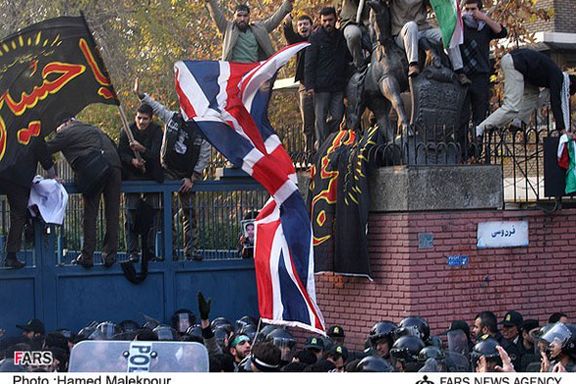
The 2011 legislation was followed by an arson attack on the British embassy in Tehran by vigilante groups who were characterized by the government-owned press as "students," but independent sources questioned the characterization. Iran's -then- deputy foreign ministers Hassan Ghashghavi and Ali Ahani went to the Majles to convince the lawmakers that cutting ties with London was not in the country's interest. The Majles subsequently added a clause to the legislation which said that ties with the UK could be normalized if the UK changed its policies toward Iran.
In 2017 Ahmadinejad called the legislation and the attack on the British embassy a move that provided pretexts to the United Kingdom to take action against Iran. He also accused the Iranian state television of broadcasting live the attack on the British embassy.
Hardliner members of the parliament prevented -then- UK Foreign Secretary Jack Straw from taking part in Hassan Rouhani's inauguration ceremony in 2013. But eventually, three years later the two countries’ embassies were reopened after a relatively long closure.

Iran’s Revolutionary Guard (IRGC) says that retaliatory military attacks against US targets for the killing of Qassem Soleimani in 2020 are still viable options.
IRGC spokesman Ramazan Sharif was quoted by Iranian media as saying that “moves such as [the attack on] Ain al-Assad base [in Iraq] are still being considered and “will become operational in due time.”
Five days after Soleimani was killed by a US air strike on January 3, 2020, Iran fired ballistic missiles at the Iraqi base hosting US troops. No Americans were killed but reports at the time spoke of dozens of servicemen receiving concussion because of the strong explosions.
At the time, President Donald trump who ordered the killing said that Soleimani presented an imminent danger to US personnel and interests in the region. He was the commander of Quds Force and Iran's top military and intelligence operative in the Middle East.
Since then, the Islamic Republic has continued threatening revenge for Soleimani, and these threats were repeated during the third anniversary of his killing this week.
Plots were discovered in the United States aimed at assassinating former US National Security Advisor John Bolton and former Secretary of State Mike Pompeo.
Iran International reported in December that based on documents a hactivist group provided, an IRGC envoy went to Washington January 16, 2022, to carry out the plan, but the IRGC was unaware that an individual hired to kill Bolton in exchange for $300,000 was actually an FBI informant.
In August 2022, the US Justice Department charged a member of the IRGC in absentia with planning to assassinate Bolton.
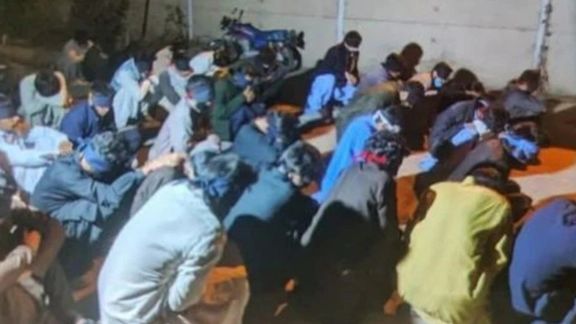
The Islamic Republic’s intelligence ministry says as of Wednesday at least 100 people have been arrested in the Sunni-majority southeastern city of Zahedan.
Intelligence ministry directorate in Sistan-Baluchistan announced that at least one hundred people, who it called "criminals", "armed robbers" and "illegal immigrants", were detained with the cooperation of the Islamic Revolutionary Guard Corps and the police.
Using the common rhetoric of the Islamic Republic authorities, the directorate claimed, "the illegal foreign nationals played an effective role in insecurity, creating terror and violent robberies in Zahedan."
Almost three months after the "Bloody Friday of Zahedan" mass arrests of Baluch citizens has begun in the Sunni city.
The Bloody Friday in Zahedan took place September 30, when security forces killed at least 93 people, and injured hundreds more as civilians protested.
On Monday, regime forces arrested at least 40 citizens in a joint operation in the flashpoint city.
Reports say the arrest of Baluch citizens has continued in the past few days, and according to activists at least one hundred citizens, including children with no birth certificates have been detained.
According to Baluch Activists Campaign website, the military commanders have attacked ordinary citizens in public places of Zahedan on the pretext of "arresting criminals and armed robbers".
Among the detainees were seasonal workers who had gathered at a square in downtown Zahedan. Agents have reportedly arrested them while running over them in military vehicles. The report said those who tried to escape to different areas of the city, have been shot.
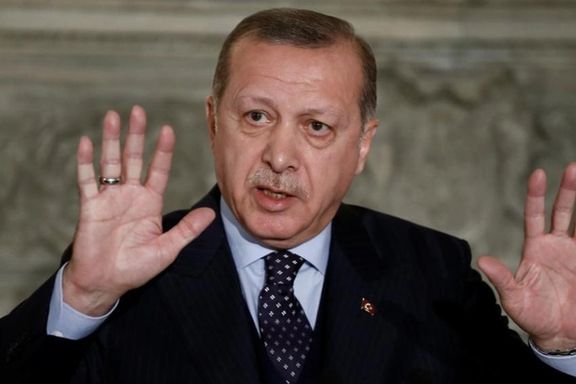
Turkish President Tayyip Erdogan said Thursday he may meet Syria's Bashar al-Assad, after their defense ministers met last week in Moscow with Iran absent.
In a speech in Ankara, Erdogan said the next step, following the landmark talks between defense ministers in Moscow, would be a trilateral meeting of the foreign ministers from Turkey, Russia and Syria, to further develop contacts.
"We have launched a process as Russia-Turkey-Syria," Erdogan said. "We will bring our foreign ministers together and then, depending on developments, we will come together as leaders."
Turkey has been the primary backer of Syria's opposition for more than a decade of war, while Russia has backed the Syrian government.
Iran, a major player in the Syrian war since 2011 and a participant in previous diplomatic efforts, was not invited to the meeting in Moscow.
The conflict continues into a second decade, although fighting is at a lower intensity than in earlier years.
With backing from Russia and Iran, Assad's government has recovered most Syrian territory. Turkish-backed opposition fighters still control a pocket in the northwest, and Kurdish fighters backed by the United States also control territory near the Turkish border.
A Turkish official said the Turkish and Syrian defense ministers met in Moscow on December 28., with the topics of migration and Kurdish militants on the agenda.
Turkish-Syrian rapprochement seemed unthinkable earlier in the conflict, and Syria's oppositions has urged Turkey to reaffirm its support.
With reporting by Reuters